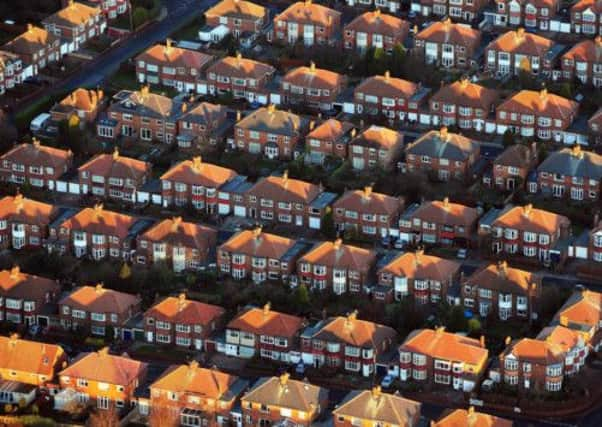Show some respect or risk losing the home you want


In the depths of the recession when mortgages dried up and property sales plummeted to depressing lows, those in a position to buy had good reason to be confident.
Some became a little too brazen, putting in ridiculously low offers, taking unfair advantage of desperate sellers and being downright rude about the homes they viewed.
Advertisement
Hide AdAdvertisement
Hide AdNow the rules of the property game are changing thanks to a market that is showing signs of recovery. The latest research from Rightmove reveals that the average asking price of a property has risen by 9.1 per cent so far this year, a figure boosted by London and the South East. It is the strongest start to a year since the 10.5 per cent recorded in 2004. In pragmatic Yorkshire, prices are still largely static, though they are predicted to rise next year and confidence in the market is growing.
The property portal believes that “cheap money and a more positive mood” are starting to release pent-up demand from those who have put buying on hold.
Rightmove director Miles Shipside says agents in most parts of the country are reporting strong demand for well-priced and decent-quality stock. In some areas this is outstripping supply and statistics back this up, showing that three per cent fewer properties were put up for sale in the first five months of 2013 compared to the same period in 2012.
Hometrack’s figures also reflect this trend. Last month, new supply grew by 2.8 per cent while sales agreed were up 8.2 per cent.
Advertisement
Hide AdAdvertisement
Hide AdHomes are also selling faster. Hometrack report that the average time on the market has fallen back to 8.8 weeks, the lowest level since July 2010. The sharpest falls in sale times have been seen in Southern England at 7.2 weeks, compared to around 11 weeks in the Midlands and Northern regions. The percentage of asking price achieved stands at just under 94 per cent, the highest level since July 2010.
Meanwhile, interest rates are low and mortgages are becoming easier to obtain as the Government’s Funding for Lending scheme begins to take effect and the banks release their stranglehold on money.
These latest statistics and surveys are a sign that while buyers are still in a strong position, they may need to take a reality check if they want to secure the house of their dreams.
“The landscape has changed for buyers. The last couple of years it’s been difficult to put deals together because buyers’ offers have been so low and sellers’ expectations have been too high, but there has been an adjustment and now buyers are finding themselves in competition. They aren’t the only game in town,” says Kevin Hollinrake, managing director of Hunters estate agency.
Advertisement
Hide AdAdvertisement
Hide AdHis advice is to be realistic when making an offer and to take great care not to offend the vendor.
“A very low offer can be counterproductive. You have to be much fairer and go closer to the asking price. It is very easy to research the sold prices of comparable property on websites like Zoopla, so you’ll know if the asking price represents good value.
“If it does and you really want the house then offer the asking price. Don’t think you have to go 10 per cent lower.”
Even if your price appears reasonable, there are other factors to be considered, including attitude.
Advertisement
Hide AdAdvertisement
Hide AdIt’s important to try and strike up a good relationship with the seller and to be complimentary about a home they may have a strong emotional attachment to.
“Be pleasant and be polite because people would much rather sell to someone they like rather than someone who is rude and who points out that they don’t like the feature fireplace you put in,” says Kevin.
“Not everyone has the same tastes and you can really offend someone by pointing these things out or by saying you think a property ‘needs work’.
“We’ve certainly had vendors refuse to sell to someone they don’t like and they’ve even taken a lower offer from someone they do like. “
Advertisement
Hide AdAdvertisement
Hide AdHe adds: “There are often emotional factors at play. People who really love their home want to sell it to someone nice. They may also really value their neighbours so they don’t want to sell to someone they dislike and who might cause upset.
“I’ve lost the count of the times I have heard a vendor say ‘I hope they buy it’ when someone they like has viewed the property.”
Estate agent Tim Blenkin, of York-based Blenkin and Co, agrees, but adds that we still don’t have properties outnumbered by buyers, or a trail of buyers reaching down the street outside every door, though most houses find one, and occasionally two, interested parties. So it also pays to be prepared.
“Get your money in place first. One of our vendors recently turned down a £600,000 offer on their house because the would-be buyer had a house to sell, although it was under offer. Instead, they took £575,000 from someone in rented accommodation with nothing to sell,” says Tim. “Cash is still king.”